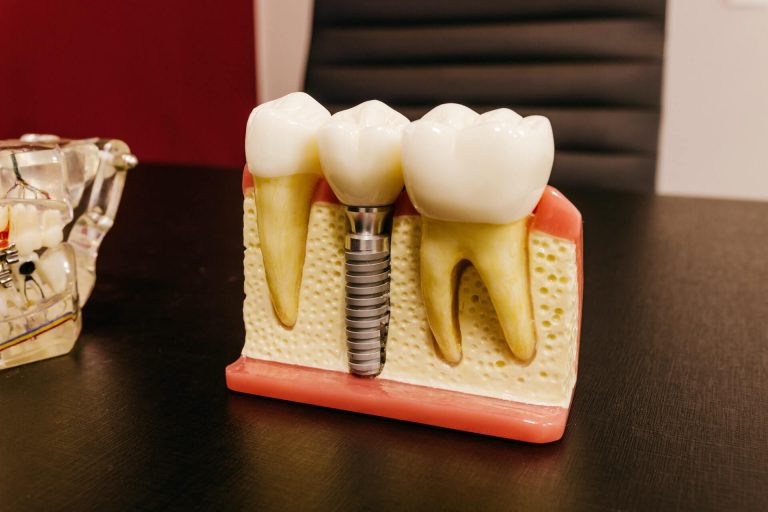This comprehensive guide will explore the question, “is dentures covered by insurance?” We will delve into the types of insurance that might cover dentures, factors influencing coverage, and tips for maximizing your benefits.
Contents
Understanding Denture Coverage
Dental Insurance
Dental insurance is the most likely source of coverage for dentures. However, not all dental insurance plans are created equal. Some plans offer extensive coverage for dentures, while others provide limited or no coverage at all.
Medical Insurance
In some cases, medical insurance might cover dentures, especially if tooth loss is due to an accident, injury, or medical condition. However, this is less common than dental insurance coverage.
Medicare
Original Medicare (Part A and Part B) generally does not cover dentures. However, some Medicare Advantage plans (Part C) might offer dental benefits, including coverage for dentures.
Factors Influencing Denture Coverage
Several factors can influence whether your insurance will cover dentures and the extent of that coverage. These include:
- Type of Dentures: Insurance plans might differentiate between full dentures, partial dentures, and implant-supported dentures.
- Reason for Tooth Loss: Coverage might be more likely if tooth loss is due to an accident, injury, or medical condition.
- Waiting Periods: Some insurance plans have waiting periods before you can receive benefits for major procedures like dentures.
- Annual Maximums: Most insurance plans have an annual maximum benefit amount.
- Deductibles and Coinsurance: You might be responsible for paying a deductible and a percentage of the cost (coinsurance).
Types of Dentures and Insurance Coverage
- Full Dentures: Full dentures replace all of the teeth in the upper or lower jaw. Insurance coverage for full dentures can vary significantly depending on your plan.
- Partial Dentures: Partial dentures replace some missing teeth in the upper or lower jaw. Coverage for partial dentures is also variable.
- Implant-Supported Dentures: Implant-supported dentures are attached to dental implants surgically placed in the jawbone. These dentures tend to be more expensive and insurance coverage might be limited or require pre-authorization.
Tips for Maximizing Your Denture Benefits
- Review Your Insurance Policy: Carefully review your dental or medical insurance policy to understand your coverage for dentures.
- Talk to Your Dentist: Discuss your denture needs and insurance coverage with your dentist. They can help you understand your options and maximize your benefits.
- Get Pre-Authorization: If your insurance plan requires pre-authorization for dentures, make sure to obtain it before proceeding with treatment.
- Consider Alternative Financing: If your insurance coverage is limited, explore alternative financing options, such as dental savings plans or payment plans offered by your dentist.
Denture Coverage by Major Insurance Providers
Here is a brief overview of denture coverage offered by some major insurance providers in the United States. Please note that coverage can vary depending on the specific plan and state regulations. It is always best to contact your insurance provider directly to confirm your coverage.
- Delta Dental: Delta Dental plans generally offer coverage for dentures, but the extent of coverage can vary. Some plans might cover 50% of the cost of dentures after a waiting period.
- Aetna: Aetna dental insurance plans typically cover dentures, but coverage limitations and waiting periods might apply.
- Cigna: Cigna dental plans usually offer coverage for dentures, but the specifics can vary depending on the plan.
- UnitedHealthcare: UnitedHealthcare dental plans might cover dentures, but coverage can vary depending on the plan and state.
- Humana: Humana dental insurance plans generally offer coverage for dentures, but the extent of coverage can vary.
Remember, this is just a general overview. It’s essential to review your specific insurance policy or contact your insurance provider to confirm your coverage for dentures.
Beyond Insurance: Other Ways to Afford Dentures
If your insurance coverage for dentures is limited or nonexistent, there are other ways to make dentures more affordable. These include:
- Dental Schools: Dental schools often offer discounted dental services, including dentures, provided by students under the supervision of experienced dentists.
- Clinical Trials: You might be able to participate in clinical trials for new denture materials or techniques, potentially receiving free or discounted dentures.
- Dental Grants and Charities: Some organizations offer grants or charitable assistance for dental care, including dentures, to individuals in need.
- Payment Plans: Many dentists offer payment plans to help make dentures more affordable.
The Importance of Dentures for Oral Health and Overall Well-being
Dentures are more than just a cosmetic solution for missing teeth. They play a crucial role in maintaining your oral health and overall well-being. Here are some of the key benefits of dentures:
- Improved Chewing and Digestion: Dentures enable you to chew food properly, promoting better digestion and nutrient absorption.
- Enhanced Speech: Dentures support the facial muscles involved in speech, helping you speak clearly and confidently.
- Preserved Facial Structure: Dentures help maintain the natural shape of your face and prevent the sagging that can occur with tooth loss.
- Boosted Self-Esteem: Dentures can restore your smile and improve your self-confidence, positively impacting your social and emotional well-being.
Caring for Your Dentures
Proper care is essential to ensure the longevity and effectiveness of your dentures. Here are some tips for caring for your dentures:
- Clean Your Dentures Daily: Brush your dentures daily with a soft-bristled brush and non-abrasive denture cleaner.
- Soak Your Dentures Overnight: Soak your dentures overnight in a denture cleaning solution to remove plaque and stains.
- Handle Your Dentures with Care: Dentures can be fragile, so handle them with care to avoid dropping or damaging them.
- Visit Your Dentist Regularly: See your dentist for regular checkups and adjustments to ensure your dentures fit properly and function optimally.
Conclusion: Making Informed Decisions About Denture Coverage
“Is dentures covered by insurance?” is a complex question with no one-size-fits-all answer. Denture coverage can vary significantly depending on your insurance plan, the type of dentures you need, and other factors.
By carefully reviewing your insurance policy, talking to your dentist, and exploring alternative financing options, you can make informed decisions about denture coverage and ensure you receive the care you need to restore your smile and oral health.







